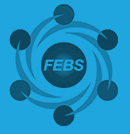
Course Overview
Training Course Objectives
The training course objectives are:
(1) To develop an experimental study design for a biological study of choice in the trainees laboratory
(2) To apply NMR and LC-MS instruments to acquire high quality data applying untargeted and targeted study designs
(3) To apply statistical methods and open access tools to process raw NMR and LC-MS data and statistically analyse the resultant data matrices
(4) To apply computational methods to assess and report data quality.
Training Course Features
The advanced training course will be delivered using a blend of lectures, case studies, hands-on laboratory sessions and computer workshops and group activities. The course will consist of eight modular themes (T) and two enabling themes (ET).
The modular themes are:
(T1) Introduction to metabolomics and background principles of NMR and liquid chromatography mass spectrometry
(T2) Experimental design and sample preparation
(T3) Hands-on nuclear magnetic resonance (NMR) spectroscopy data acquisition and data processing
(T4) Hands-on liquid chromatography mass spectrometry (LC-MS) data acquisition and data processing
(T5) Statistical analysis in metabolomics
(T6) Metabolite identification
(T7) Open access science and data repositories
(T8) Incorporating metabolomics in your research.
The two enabling themes will run throught the course and include (ET1) four keynote presentation to provide information on the application of metabolomics in different research themes and (ET2) a personal learning log to enable attendees to consider and reflect on their own personal learning objectives before, during and after the course.
Pre-course material including pre-recorded lectures and background reading will be provided to attendees four-weeks before the start of the course. All course material will be provided electronically.
Practical Laboratory Training and Computer Workshops
The course has been designed to maximise hands-on laboratory and computational workshop training. You will learn skills, standard operating procedures and gain an awareness of the computational resources that you can apply in your metabolomics research, so that by the end of the course you will have the confidence to apply the techniques in your own research. Laboratory session will be conducted in sample preparation, and both NMR and LC-MS using state-of-the-art instrumentation. Training will be performed in small group sessions to ensure all attendees have the opportunity to perform practical components. Computer workshops will be performed in a purpose designed suite and allow ample time and support to allow attendees to practice the exercises. All hands-on practical sessions will include a defined list of tasks to be performed and a problem solving exercise to assess learning objectives.
Networking and Discussing Your Own Projects
Dedicated time will provided throughout the week to ask questions and discuss your own research projects with the experts. There will be a dedicated panel Q&A session at the end of the course and social events throughout the week where you can interact with other attendees on the course and the teaching team in an informal setting.





